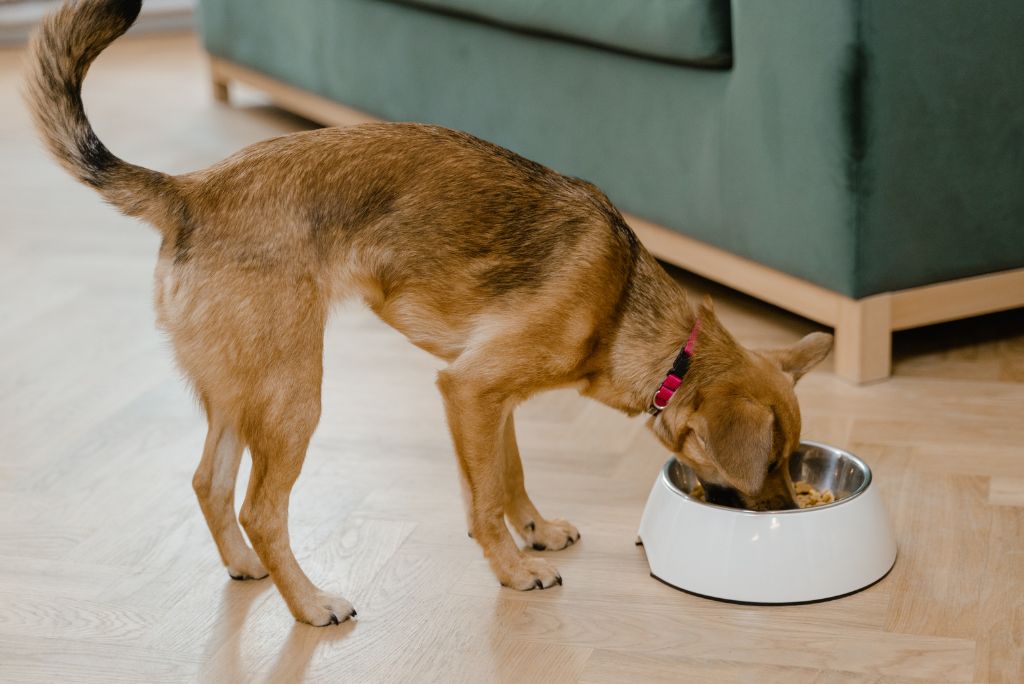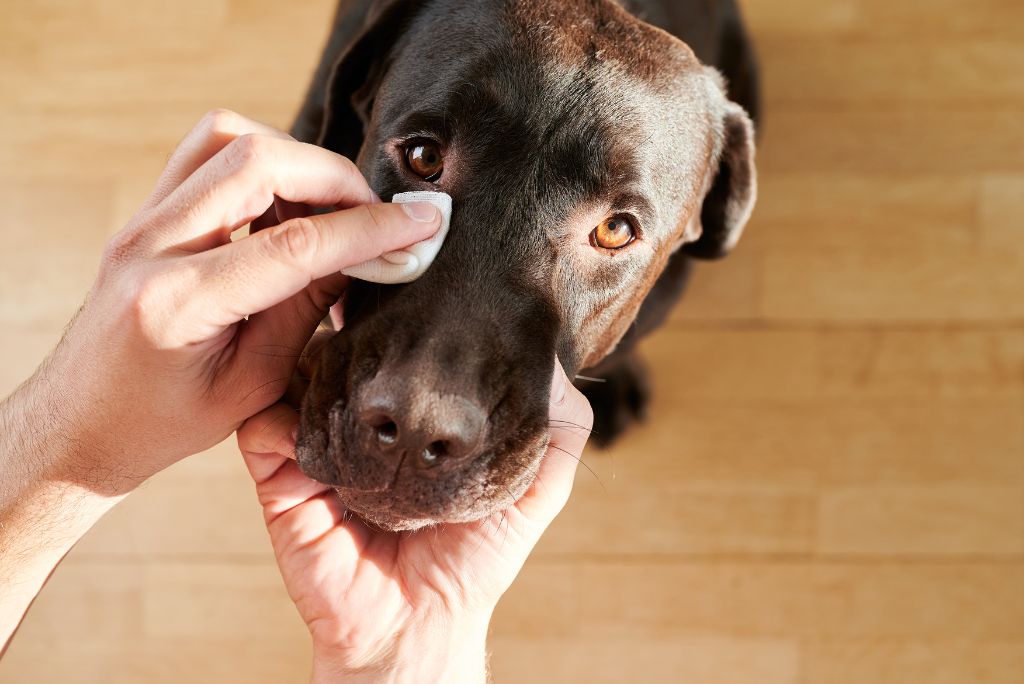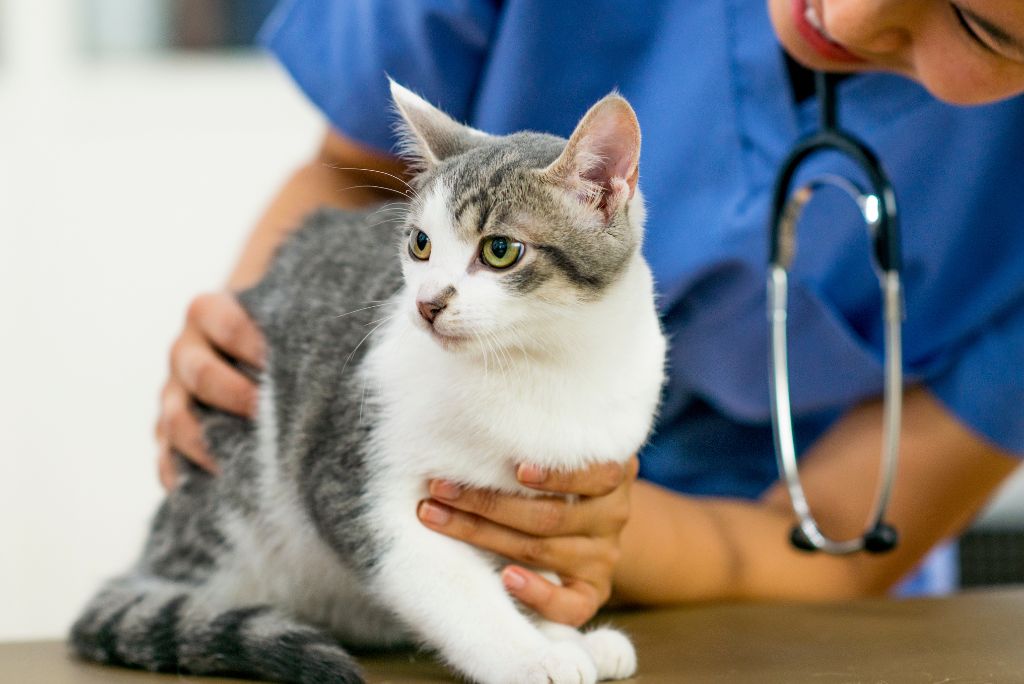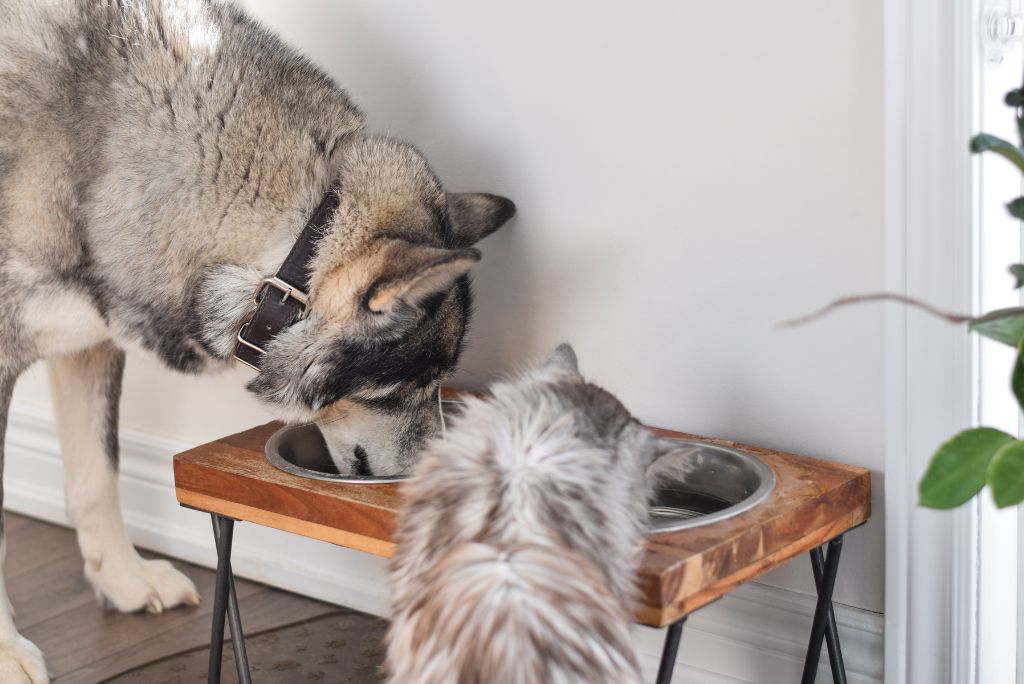
Effective Solutions for Pet Allergies
It is not uncommon to see our pets having a good old scratch, whether it’s a back leg getting behind the ears or a nibble at their paws. The odd itch and scratch is usually nothing to worry about.
But what about when pet scratching gets out of hand and it becomes obvious that something is amiss? Pet allergies are surprisingly common and can present in a variety of different ways, one of the most obvious being itching and scratching. This is usually down to skin irritation or sore spots that come about due to a pet’s intolerance to something, perhaps food, plant-life or a substance used around the home.
For the most part topical allergies, whilst uncomfortable, are usually harmless and can be easily remedied. However, if left untreated they can pose further issues, and if you think your pet may have an allergy it is important to get them seen by a medical professional.
We are going to discuss some of the most common causes of pet itching, what to look out for when it comes to pet allergies and how to treat them effectively.

Common pet allergies
Just like humans, animals can also suffer from allergies, and these can range in severity. These allergies can be caused by a number of different things and present in various ways; here are some of the most common causes for allergies in pets:
Skin allergies
Pet skin allergies are one of the most prevalent in pets and can often be characterised by skin redness, dryness and flaking or little bumps, hives or sores across the skin. This will of course be uncomfortable for your pet and will likely cause them to itch and lick at the irritated areas.
A skin allergy or contact dermatitis in animals can be down to any number of things. Usually things like certain plants, substances used around the home and even different materials can all irritate an animal's skin and cause discomfort.
Food allergies
Another common allergy amongst pets is intolerances to certain foods. This can be a particularly tricky one to pin down, so as soon as you notice the issue it is important to consult your vet to rule out possible causes. A diet of elimination can help identify the allergen which, once found, can be fully removed from your pet’s diet and their food closely monitored for trace amounts.
Food allergies can cause itchiness and sore skin, as well as considerable digestive symptoms such as abdominal pain, diarrhoea, vomiting and flatulence.

Flea allergies
Fleas, and other animal-dwelling parasites, can cause unpleasant allergic reactions in our pets. And while the general symptoms of these unwanted visitors (extreme itchiness and sore skin) can mimic those of an allergy, it is important to keep an eye out for signs of more significant allergy, such as swelling and struggling to breathe.
Allergic reactions in pets - what to look out for
Allergy symptoms in pets can vary depending on the severity of the reaction, and knowing the signs and symptoms of pet allergies can help intercept the issue quickly, stopping it from developing into a more severe reaction.
Here are some of the most common allergy symptoms to look out for in your pets:
Itching, scratching and sore skin
Excessive itching and scratching is usually one of the first signs that your pet is experiencing some kind of allergic reaction. The skin may appear red and patchy, possibly with sores or raised bumps, or may even be dry and flaking.
Your pet might even experience hair loss, either from the motion of scratching or from the damaged skin beneath; this can be one of the early indicators that your pet is experiencing a skin allergy.
It is important to treat this promptly, as scratching can break the skin and cause infection which can lead to further complications.
Runny eyes and nose
The same way humans may experience itchy, watery eyes and a runny nose when having an allergic reaction, this can happen to our pets too. You may notice your pet’s nose dripping, perhaps excessive eye-leaking and tear staining, which may even dry up and harden.
In this instance, it is important to regularly clean your pet’s eyes and nose to avoid mucus build up and crustiness.

Abdominal distress
Digestive issues can also be an indicator of an allergic reaction. Vomiting, diarrhoea, bloating and abdominal pain, as well as excessive gas, can all point towards an allergy or intolerance in your pet.
Swelling
Moving onto the more severe levels of reaction, swelling is a sign of a significant allergic reaction and should be treated as an emergency. Swelling is often gradual and comes on thick and fast; it can be surrounding a bite or wound, localised to a specific area or may be referred to other parts of the body.
What we don’t want is for our pet’s airway to swell and affect their breathing, so any swelling should be seen to as soon as possible.
Struggling to breathe
If it becomes obvious that your pet is struggling to breathe, this could quickly become an emergency situation. Wheezing, coughing or a general struggling to breathe can be fatal symptoms of an allergic reaction and will likely require emergency medical assistance.
These symptoms can be a sign that your pet’s airway is compromised and could completely close up if left untreated.
Weakness / Seizures
In extreme cases, an allergic reaction can cause overall muscle weakness, collapsing or even fitting in pets. While this is extreme, it is still a possibility, particularly if your pet has heightened sensitivity or an underlying health condition. In this instance you must contact your vet immediately.

Remedies for pet allergies
While our pets cannot speak to us, they can show us they need help or are uncomfortable through their actions. And as pet parents, it is our job to take notice and treat them accordingly.
Managing pet allergies isn’t usually too difficult, with most mild allergies having quick and effective treatments to soothe symptoms and minimise the progression of the reaction.
Here is some of the allergy relief for pets which can make them more comfortable in the event of a reaction:
Antihistamines
The first thing your vet will prescribe when they see an animal having an allergic reaction is an antihistamine. These drugs halt the production of histamine, the chemical which causes an allergic reaction, to stop symptoms and make your pet feel better.
In extreme cases these can save your pet’s life!
Scratch relief for pets
Itchy, sore skin can be very uncomfortable for your animal companion, and so consulting your vet about certain soothing creams or ointments that are pet-safe can be a godsend for a poorly pet.
We want to discourage our pets from excessive scratching wherever possible, and so topical treatments can help soothe itching and soreness, as well as moisturise dry and flaking skin. Also, creams with antiseptic properties will ensure the proper care and healing of open sores and wounds. Natural remedies such as colloidal oat baths can likewise help to satisfy some of the need to scratch.
Diet
If your pet’s allergies are food-related then gradually switching up their diet to foods that are gentler on their system can be very beneficial. A raw diet in particular has been found to be less likely to evoke allergic reactions in household animals, so with some guidance from your health professional this could be one avenue to explore.
Here at World 4 Pets we have a wide range of fresh high-quality raw diet foods to choose from - check it out today!

In Conclusion
If your pet appears to be showing symptoms of allergies - whether that’s excessive licking, biting or another behavioural change - it’s best to act now, rather than later.
Reach out to a trusted, qualified professional for more personalised advice. But in the meantime consider what factors may be contributing to your animal companion’s current wellbeing, as it may be something quite obvious that can be removed to help alleviate these symptoms.
Don’t forget that at World 4 Pets we also offer Subscribe & Save on cat and dog deworming and flea products, as well as our Meat & Bones ranges. So you can save 5% on regular orders, and ensure your pet is receiving the best quality of care possible.